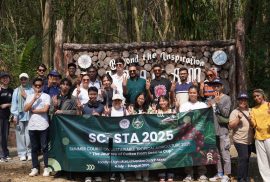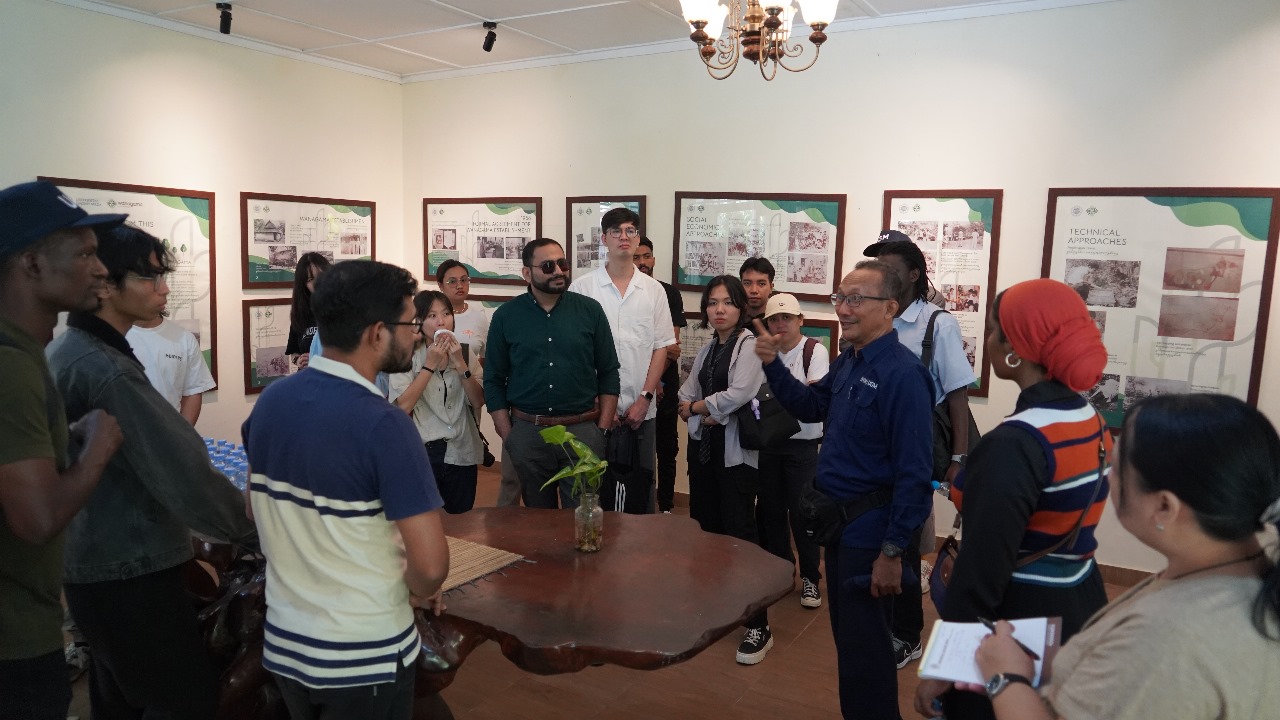
As part of the third-day agenda of the Summer Course on Sustainable Tropical Agriculture 2025 (SC-STA 2025), the Faculty of Agriculture, Universitas Gadjah Mada (Faperta UGM), invited participants to take part in a field learning activity at the Merapi coffee cultivation center in Sleman Regency, Yogyakarta Special Region.
The activity was guided by Andrianto Ansari, S.T.P., M.Agr., Ph.D., and Dr. Priyaji Agung Pambudi, S.Pd., M.Si., who accompanied international participants from Singapore, Bangladesh, Gambia, Pakistan, India, Malaysia, and the Philippines. On this occasion, the participants explored sustainable tropical coffee cultivation practices in Cangkringan, Sleman. The robusta coffee grown in this area is not only a flagship local agricultural commodity but also plays a significant role in boosting the local economy.





 8
8